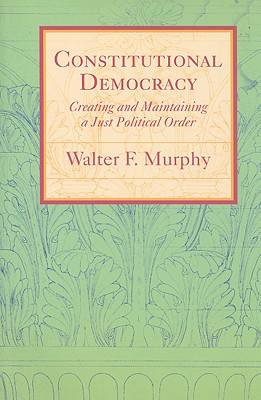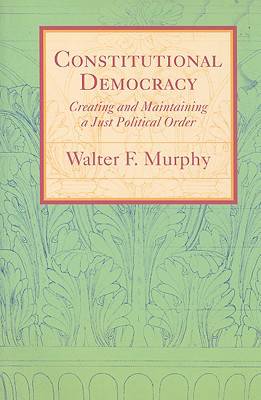
- Retrait gratuit dans votre magasin Club
- 7.000.000 titres dans notre catalogue
- Payer en toute sécurité
- Toujours un magasin près de chez vous
- Retrait gratuit dans votre magasin Club
- 7.000.000 titres dans notre catalogue
- Payer en toute sécurité
- Toujours un magasin près de chez vous
Description
Winner, 2007 Best of the Social Sciences, Professional and Scholarly Publishing Division of the Association of American Publishers
Constitutional democracy is a political hybrid, the product of an uneasy union between, on the one hand, the normative theories of constitutionalism and democracy and, on the other, the desire to live under what James Madison called "free government." In this engaging and provocative work, Walter F. Murphy combines a lifetime's study of constitutions and democracy with traditional storytelling to answer fundamental questions about constitutional democracy: How is it created? How is it maintained? How can it be adapted to changing circumstances?
Murphy begins with a definitional section on constitutions, constitutional texts, constitutionalism, and democracy. Next, he tells the story of how a democracy is established within the context of a fictional constitutional convention for a fictional country. He follows delegates--many of whose arguments track those of real-life political, economic, and legal theorists--as they debate and draft the components of a constitution. Here, the reader comes to understand and appreciate the components of a constitutional text and the contingency and potential of the constitution-making process. Murphy then offers an expository analysis of constitutional maintenance, adaptation, and, essentially, constitutional change.
Spécifications
Parties prenantes
- Auteur(s) :
- Editeur:
Contenu
- Nombre de pages :
- 568
- Langue:
- Anglais
- Collection :
Caractéristiques
- EAN:
- 9780801891076
- Date de parution :
- 01-09-08
- Format:
- Livre broché
- Format numérique:
- Trade paperback (VS)
- Dimensions :
- 150 mm x 226 mm
- Poids :
- 748 g







